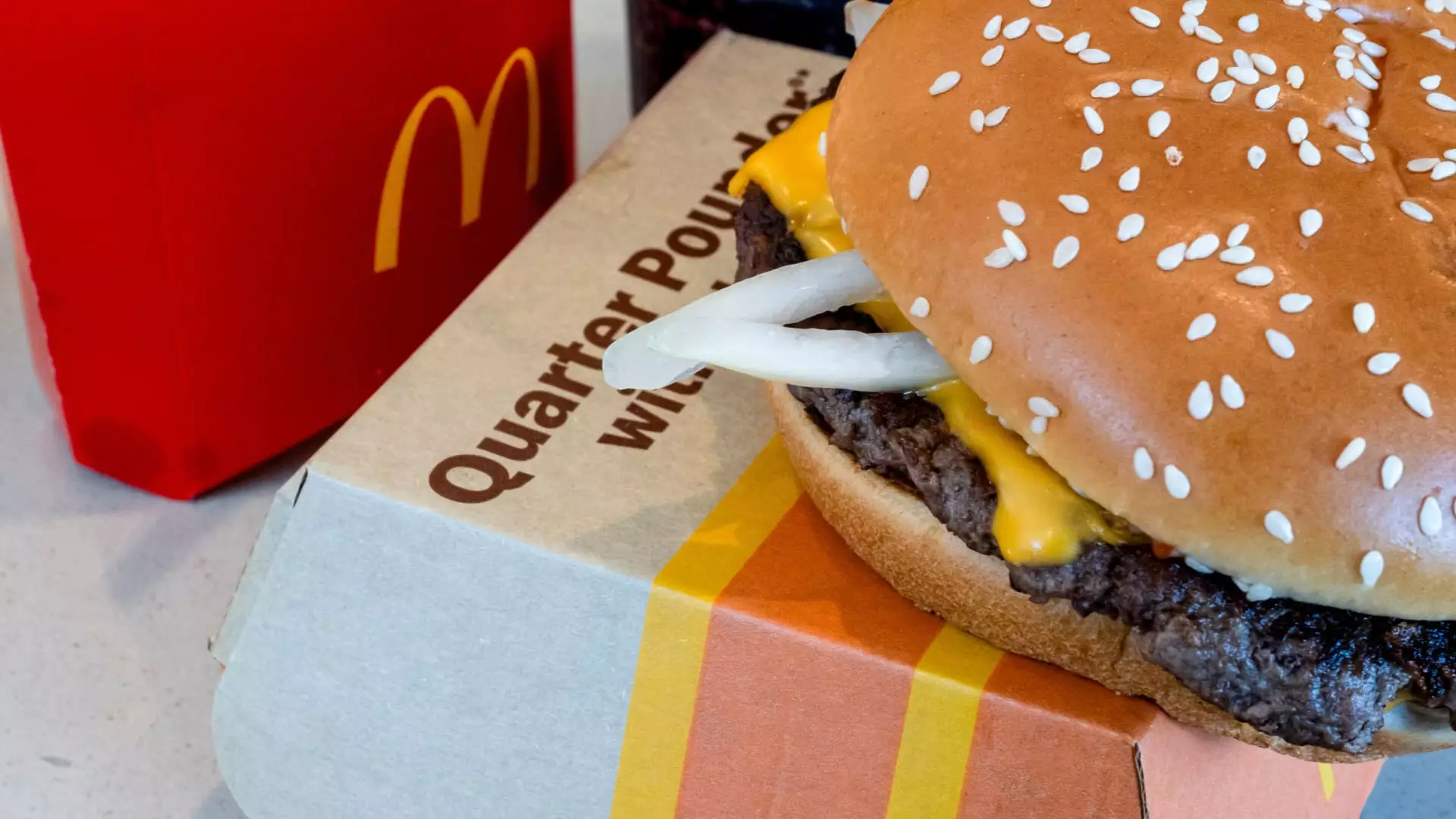Recent reports from the Centers for Disease Control and Prevention (CDC) indicate a troubling E. coli outbreak associated with McDonald’s Quarter Pounders. This crisis has led to an alarming total of 75 confirmed cases spread across 13 states, highlighting potential deficiencies in food safety protocols within the fast-food industry. Among the affected, there have been 22 hospitalizations, including two individuals who developed the severe condition known as hemolytic uremic syndrome, which can result in kidney failure. Tragically, one confirmed death of an older adult from Colorado has underscored the seriousness of the situation.
The CDC has emphasized that the reported figures may only represent the tip of the iceberg. The agency warns that many individuals suffering from E. coli infections are never officially diagnosed as they may recover without medical attention. Consequently, the actual number of cases may be significantly higher than reported, suggesting an urgent need for enhanced surveillance systems.
Health officials are scrutinizing slivered onions as the primary suspect behind the E. coli outbreaks. McDonald’s has acted preemptively by ordering the removal of slivered onions from its supply chain in the affected region. Meanwhile, the produce supplier, California-based Taylor Farms, has voluntarily recalled various onion products due to potential contamination risks.
In tandem with this, federal agencies are also evaluating the beef patties used in the Quarter Pounder as another possible source of the outbreak. As a response, McDonald’s has temporarily suspended sales of Quarter Pounders in numerous states, including Colorado, Kansas, and parts of Michigan, creating ripples in the fast-food giant’s operations.
This outbreak is significant not only due to its immediate health implications but also because onions serve as a critical ingredient in a menu item that has been a staple for McDonald’s, contributing billions to its annual revenue.
The repercussions of the outbreak have been palpable in the stock market, with McDonald’s shares experiencing a downward trend following the CDC’s announcement. After the initial disclosure of the outbreak, the stock fell by 6%, reflecting investor concerns regarding the long-term implications for the fast-food chain’s reputation and financial performance.
As McDonald’s navigates this crisis, the company faces the challenging task of maintaining consumer trust. Executives have indicated that while they are taking the outbreak seriously, it is still too early to assess the effects on store traffic. In light of the outbreak, analysts are cautiously estimating a minimal growth of 0.5% in U.S. same-store sales for the third quarter, highlighting a stagnation in consumer engagement following several quarters of mediocre performance.
In this climate of uncertainty, McDonald’s is attempting to reassure customers concerning the safety of their menu items. Clear and transparent communication is essential for retaining public trust during health crises. Health experts suggest that unless this situation escalates further, the brand may experience limited damage. Comparisons have been drawn to a previous E. coli outbreak linked to Wendy’s, which similarly did not have lasting adverse effects on their brand image.
To mitigate any potential backlash, McDonald’s is working diligently with health authorities to trace and contain the outbreak, while simultaneously sending a message that their remaining food offerings are safe to consume. The emphasis on safety may serve both as reassurance for consumers and as an advertisement for the company’s commitment to public health.
As the CDC continues its investigation into the E. coli outbreak and its sources, McDonald’s is at a critical juncture. With ongoing health evaluations and market fluctuations, the company must navigate not only the immediate public health implications but also the broader fallout on consumer behavior and investor confidence. Going forward, transparency, rapid responsiveness, and an intense focus on food safety protocols will be paramount in ensuring that McDonald’s emerges from this crisis with its reputation intact.
In the fast-moving world of fast food, incidents like these serve as stark reminders of the need for robust safety measures; the health of consumers and the future of brands hinge upon such vigilance. As the situation develops, both the industry and consumers will be watching closely.

